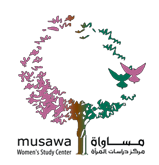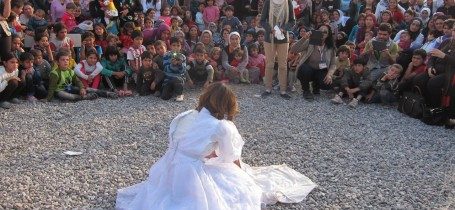Iraq: Syrian women and girls struggle to survive in camps
When 20-year-old Zainab fled the ongoing fighting in Syria, she hoped to find safety in the Arbat refugee camp in Sulaymaniyah, Iraq. Though she may have escaped violence in her home country, she was unable to escape it at home. When her father forced her to marry an abusive husband, she fled once again in October 2013–this time to a women’s shelter, where she attempted to commit suicide.
Zainab’s story is not an uncommon one among the more than 210,000 Syrian refugees in Iraq, where women and children make up a disproportionate number of the overall population–up to 80 percent in some camps according to UNHCRestimates.
While life is difficult for all refugees escaping the ongoing violence in Syria, for women and children it can be particularly harsh. Women who are separated from their communities and families often face a higher risk of exploitation, ranging from human trafficking to underage marriages, as well as violence and abuse. The problem is further exacerbated by weak legal protection, low awareness among women of their rights and, in many cases, cultural attitudes.
In response, UNDP, together with UNFPA and other partners, has launched several schemes to protect female refugees within and outside camps in Erbil, Duhok and Sulaymaniyah, in Iraq’s Kurdistan region.
One scheme helps women, whose husbands walk out or are killed in the fighting, overcome legal hurdles and provide for their families. For women such as Fatima, a 40-year-old refugee who fled to Iraq with her husband and six children, the breakdown of her marriage left her with little protection under the law.
“My husband and I had a misunderstanding and, as our marriage had only been sanctioned by a mullah and wasn’t legally registered, my husband decided to leave me,” says Fatima, who, like many other women in her situation, had no official documents and thus no possibility of legal redress.
“It was terrifying and I didn’t know how I was going to provide for my children.”
Without a male head of the household and primary bread winner, Fatima’s entire family no longer had any means of subsistence. However, when UNDP’s legal and social centre provided a mediator, the husband and wife were able to begin resolving their differences.
“I am much happier now,” Fatima says. “My husband is back with his family and our marriage has been legally registered in court. I no longer have to worry about the future.”
For survivors of violence, rape or abduction and trafficking, UNDP is providing legal counseling services and is recruiting lawyers to help and represent the victims and their families. Survivors are also referred to health providers and are provided with psychosocial support. And this work is starting to make a difference to the lives of refugees.
“Our work on domestic and gender-based violence has been challenging due to the cultural and social barriers as well as the stigma associated with sexual violence in general,” says UNDP’s Nahid Hussein. “But the results have been encouraging. There is evidence of a significant increase in the number of reported cases since we established support offices in the camps.”
Since Zainab escaped to the women’s shelter in October, her prospects have also begun to change. When a local NGO found out about her case, UNDP provided her with a lawyer who offered free legal aid, along with a social worker to help with counseling and psychosocial support.
“Now I no longer feel alone,” Zainab says. “With the legal and social assistance I have received, I have become more optimistic about starting my life again.”

